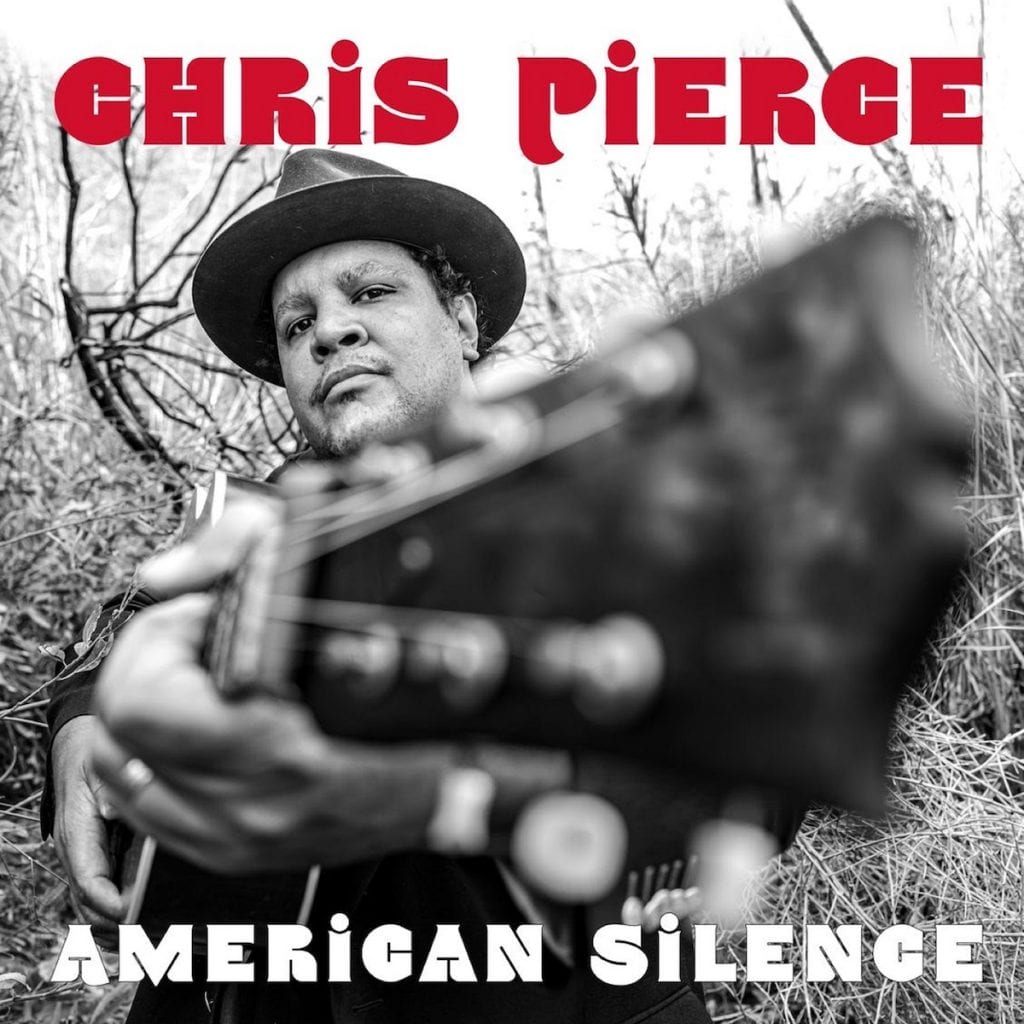Chris Pierce Issues Powerful Statement about ‘American Silence’

Chris Pierce’s American Silence is one of those albums that truly feels like a lifetime in the making. Pierce tends to play soul music, and has risen to prominence recently with his song “We Can Always Come Back to This” that was featured on the TV series This Is Us. He explored a sparser sound with his recent collaboration with Sunny War and their album War & Pierce. The singer-songwriter continues in that vein on American Silence, with Dylan-esque protest songs far more propulsive and direct than the yearnings of the ’60s.
The album is meticulously produced, and that sense of care extends even to its rollout. Pierce wanted to release American Silence during Black History Month for a reason. “Our contributions are often overlooked, trampled on and left alone. Black History Month is a reminder to never let our beautiful and powerful notes dampen into the night,” he writes. “A reminder to sing those mighty songs and to be joyous while they ring into the sunrise and into another day. Black History Month reminds us to sing strong and sing proud in honor of our victorious ancestors and their contributions and to also celebrate each other as we rise up, as we grieve and as we succeed.”
Indeed, American Silence spends a lot of time on that grief — and rage. Throughout the album, Pierce’s voice is soulful but clipped, as if he’s keeping tight rein on his own emotions to ensure that his devastating lyrics hit their target: your heart. “American Silence,” the lead-off track, sets the tone by piercing the veil of paternalistic capitalism. Your job won’t love you back, and by juxtaposing this critique alongside the racial violence that has characterized this country’s 400-year history, Pierce deftly illustrates how we are all oppressed by our political economy, and that our economic system is the root of many evils.
But that opening track is by no means the hardest punch. Pierce alternates between social commentary and narratives about individuals to illustrate how racism has reverberated through our society’s past, present, and future. “Chain Gang Fourth of July” has its roots in Frederick Douglass’ legendary address, “What to the Slave is the Fourth of July?” As each verse examines how our nation’s carceral system, in the hands of white authority figures, impacts Black people, the song serves as a vivid illustration of the enslavement that is still condoned in this country.
Pierce asks us to examine the silences we experience on an individual level as well. How do we break the silences that prop up the cruelty of our society, the cruelty in our interpersonal relationships? On “Bring the Old Man Home,” Pierce connects the intimate violence we give and receive to the isolation experienced by our most vulnerable community members. In addressing homelessness, Pierce once again paints the irony of those going without in a land of supposed freedom and plenty.
When Pierce breaks American silence about injustice, it’s not so much about giving voices to the voiceless — an oft-repeated social media aphorism. Instead, Pierce wants us to confront the fact that we know about all of this — how could we not, after four years of a media microscope on political machinations that occurred under our very noses long before Trump? Children in cages, people unfairly incarcerated and executed, police acting with impunity, cultural erasure: We are not innocent, we are not helpless, we are simply silent.


